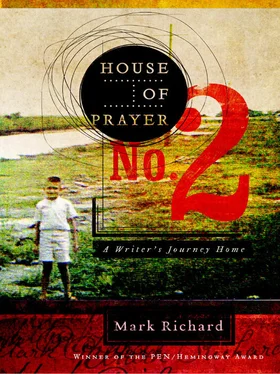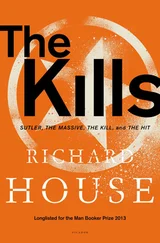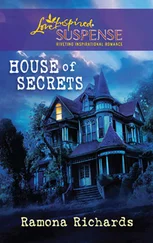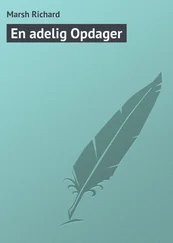Up at the top of the stairs stands his special child hardly able to catch his breath from crying so hard and not wanting to wake his mother. The special child clings to his father’s pants by the pockets and tells his father he wants to die because his dog Hamburger has, isn’t there something his daddy can do about it, and all the father can do about it is pet the boy’s head and go back downstairs, get the fire shovel out of his truck, and hope he has enough strength to bury what is left of the little dog in the corner of the cornfield out back of the house.

HERE IS SOME MORE LUCK the German and the father have. One day they are driving the German’s Volkswagen bus up a cliff road to check on some land the company is clearing. A log truck loaded with company logs comes around a corner in the middle of the road. The German also always drove in the middle of the road. In the collision the flat-fronted bus folds forward, and the German’s legs are pinned and broken in several places. The father is luckier. He raises his arm to his face in time to protect it as he goes through the windshield. In his luck, he goes through the windshield and then over the cliff. He flies over the cliff and lands on some railroad tracks at the bottom. Luckily, the train is late that day. They find his eyeglasses perfectly balanced on a train rail, unbroken.
Here are some of the people who comfort the family: Dr. Jim’s wife on the one side of the house. The other next-door neighbors, the Shorts, next to them, the Longs. Down the street a whole block of Misses, Miss Laura, Miss Effie, Miss Roberta, and Miss Henrietta, who used to be a Mrs. until her husband had a heart attack and died the first time they had sex, everyone said. Down the next block, another, older block of spinsters, bitter children of Reconstruction too old to come out to bring food but who send Negro maids with bags of bad fruit from trees in their yards. The barber and his wife come, and the doctor with his third or fourth wife, and Prince and his Italian wife are always there. The father, laid up with a broken leg, busted head, split ribs, and ripped arm, teaches his son to play chess on a little folding set he had from college. The mother sits at the foot of the bed and watches. They all wait for the oil dealer to come. The oil dealer always brings a paper sack of cold beer and ice cream and silly jokes.
You ought to meet my cousin Ruth Ann, the oil dealer tells the mother. She’s a lot of fun, and she has a daughter they say ought to be tested too.

THE SPECIAL CHILD HAS NEVER SEEN a movie before. He is stunned. Misty of Chincoteague on a mile-high drive-in screen. In Ruth Ann’s Rambler she drives fast down the middle of the highway, her and the mother in the front seat, the two special children in the backseat. The little girl with impossibly tangled red hair, Christie, says Misty is for babies. Christie says if the special child liked Misty so much, then he ought to come over and watch the Invisible Man on TV on Saturday. She says she knows how to make the house dark even in the afternoon. She says she knows how to make it scary. The special child is still hungover from concentrating on Misty . It was almost better than Moe throwing suitcases from the train. While he is thinking this, Christie says to her mother that she is going to vomit. Ruth Ann keeps her Rambler fast down the middle of the highway talking a mile a minute to the mother and says for Christie just to do it out the window. Lean way out and try not to get any on the car.
The special child holds Christie’s legs as she leans way out and vomits. It felt as if she would crawl all the way out if he did not hold her. He wraps his arms around her legs and presses his face against her bottom. When she is through, he pulls her in the window, her red hair a solid mass of tangles. The special child helps clean her mouth and face of popcorn and 7Up with an old black slip that for some reason is crumpled up in the floorboard of the backseat of Ruth Ann’s rambling car.
WHEN THE FATHER IS FEELING BETTER and up on crutches, he decides to drive them down to Louisiana, and the mother packs that day, even though they will not leave for a week or so. He says they will have a vacation, visit some battlefields on the way down, make a long trip out of it. He will “borrow” a car from the company, a grey sedan with a two-way radio in it.
Before they leave on their vacation, the school invites them to have the special child tested on the first Saturday after school closes for the summer. First grade is over. Bring good pencils.
When the special child shows up with the mother for the testing, the mother is glad to see Ruth Ann there with Christie and Christie’s cousin Lynn. They are all three going to be tested together. Most of the test is written and is fun, but some of the test is given by a witch. The witch has cards and blocks and boxes of gears. Once during the testing, Christie has to vomit. Lynn doesn’t even care Christie had to vomit. Christie was always vomiting. That is one reason she is being tested.
The closer they get to Louisiana on their vacation, the madder the father gets. Maybe it is all the battlefields. Maybe it is all his broken places in his body. Maybe it is all his land underwater. Maybe it is all the driving time he has to think about everything, driving on the roads before there were interstates between Virginia and Louisiana. Maybe it is going home. Maybe it is because everybody thought he would go real far in life and should be there now, him near the top of his class in chemical engineering at Rice, the people at NASA wanting him bad, and then in his senior year him switching to LSU and forestry so he could be out in the woods by himself all the time. Maybe that is underneath it all, riding in a hot car over asphalt and tar with a trembly wife and special son for days. Maybe he just doesn’t like people at all, maybe that is it.
At the mother’s mother’s house in Louisiana, they have spicy chicken and rice and beer in coolers in the kitchen and black coffee and fried bread and brothers coming in off shifts from the oil fields and refineries to see their big sister, the brothers tossing the special child up in the air and taking him out back to see how they are putting a stock car together. Cousins and uncles and aunts come over, all speaking French, and Uncle Comille with his pigeons and Buddy with his five sons. Only the mother’s father sits a little away from things at the table playing solitaire and smoking unfiltered cigarettes. In his life he has been a miner, a baker, a rigger, a cowboy, a pipefitter. To make ends meet, he now drives a mowing tractor at a golf course, bringing home buckets of old golf balls he runs over. Maybe now he is tired.
It is quiet across town at the father’s mother’s house. You can hear the grandfather clock on the back gallery ticking all through the house. Dinner will always be at high noon. There are no brothers or sisters. One cousin, somewhere. Big Bill, the father’s father, lets the special child, his only grandchild, sit in his lap and play with his Shriner’s ring and fiddle with his warts. Before high-noon dinner of turkey and dumplings Big Bill balances a shot glass on either arm of his chair, one shot glass filled with bourbon, the other filled with ice water. The special child likes the moments in between the bourbon and the water when the body he is slumped against relaxes and the warm deep breath blown out down on the top of his head smells sweet.
Читать дальше













